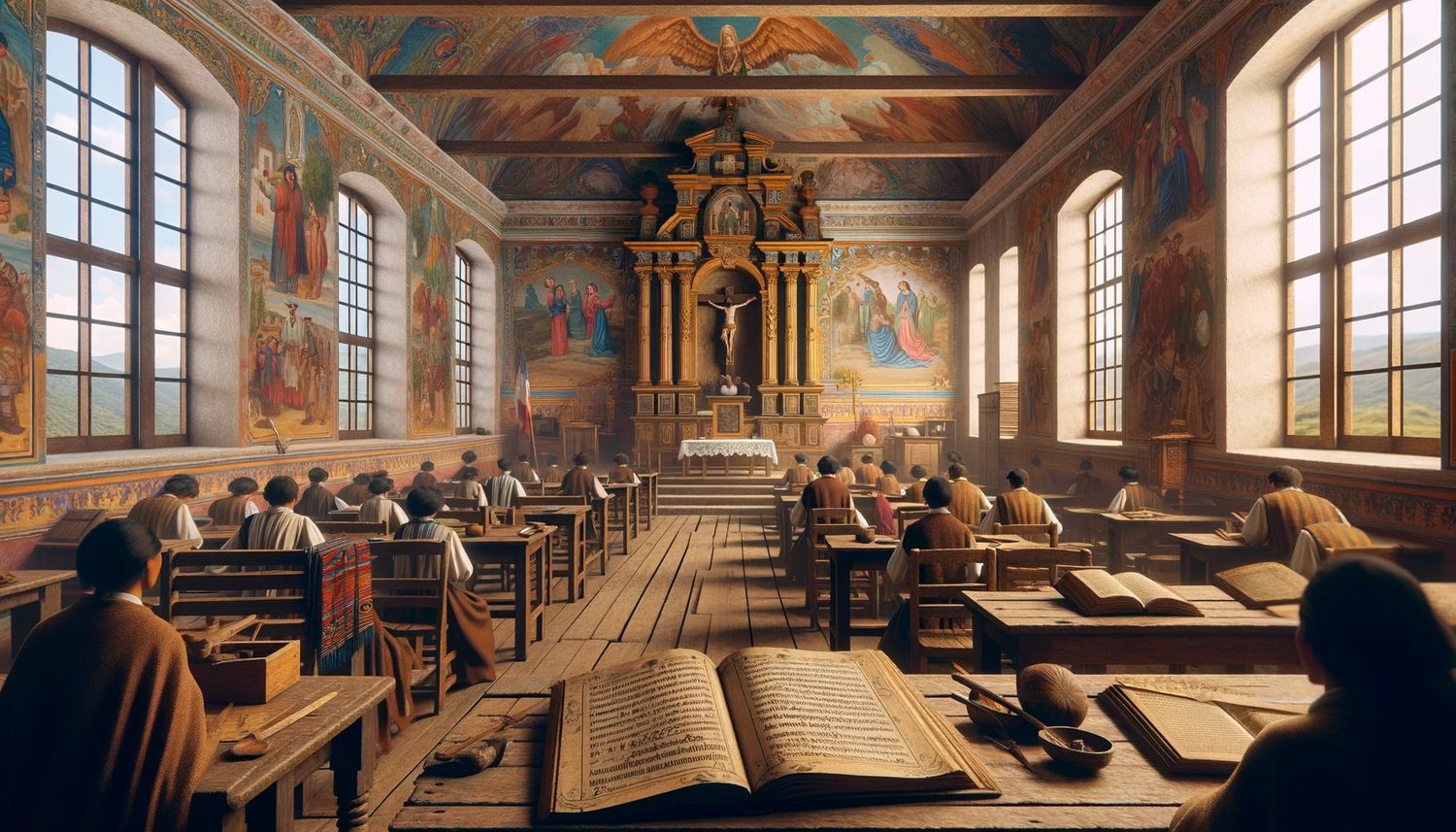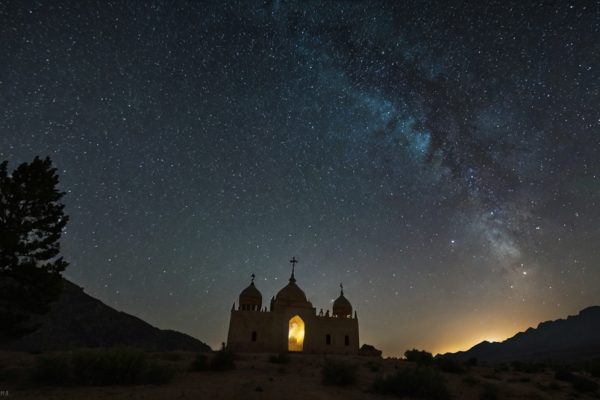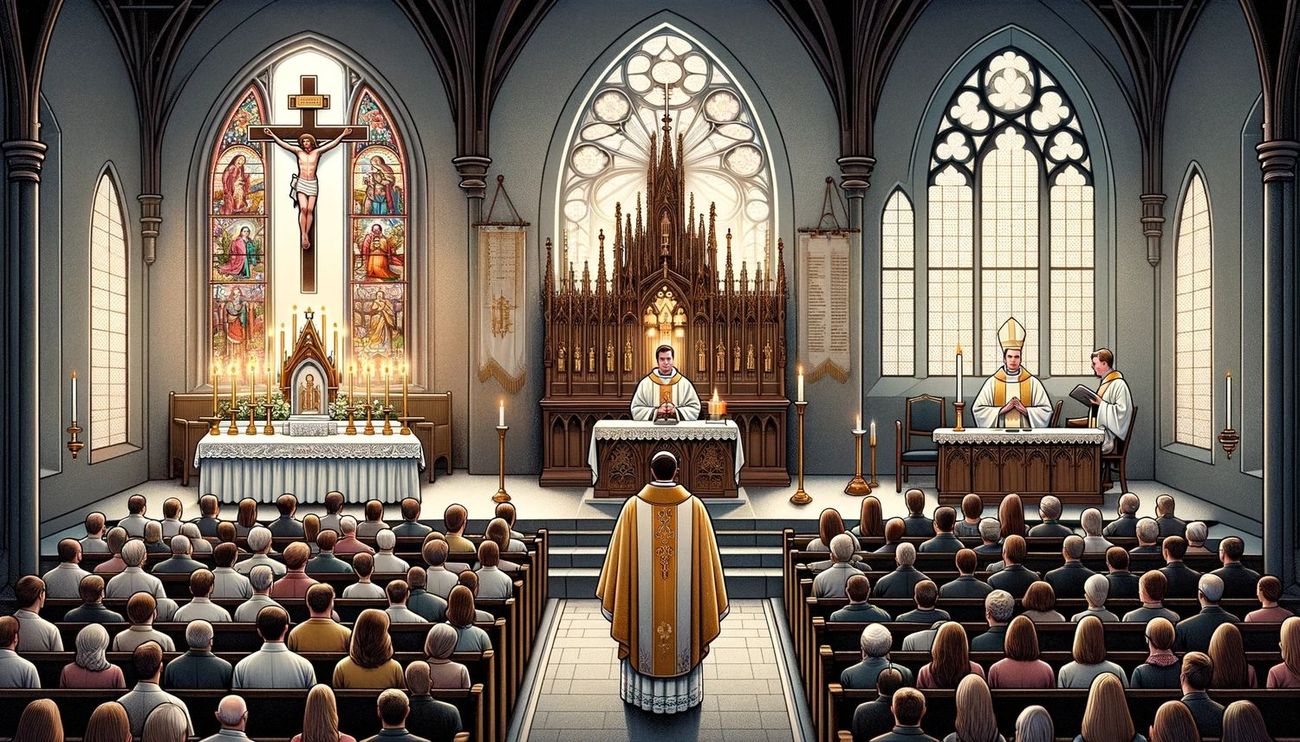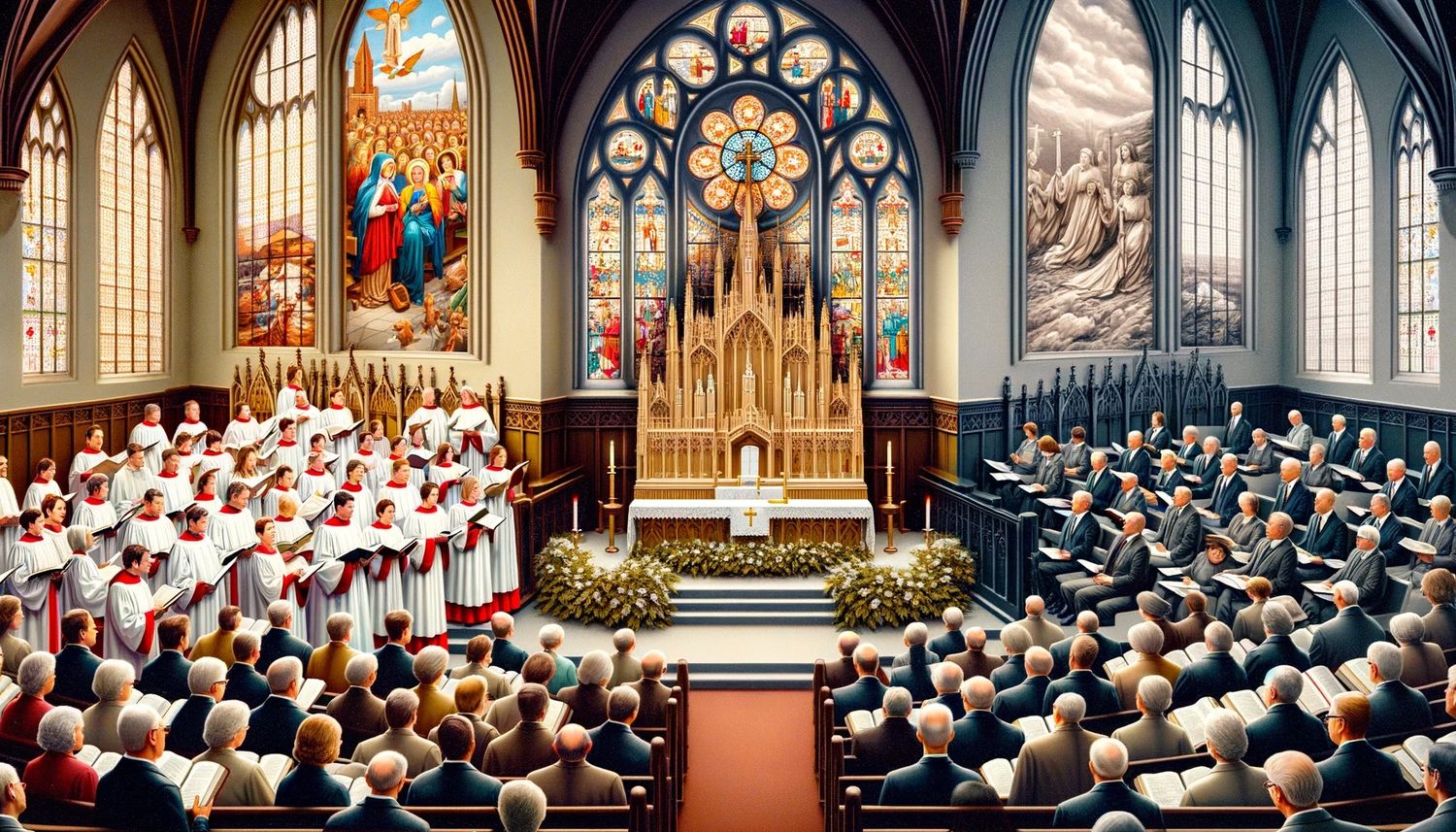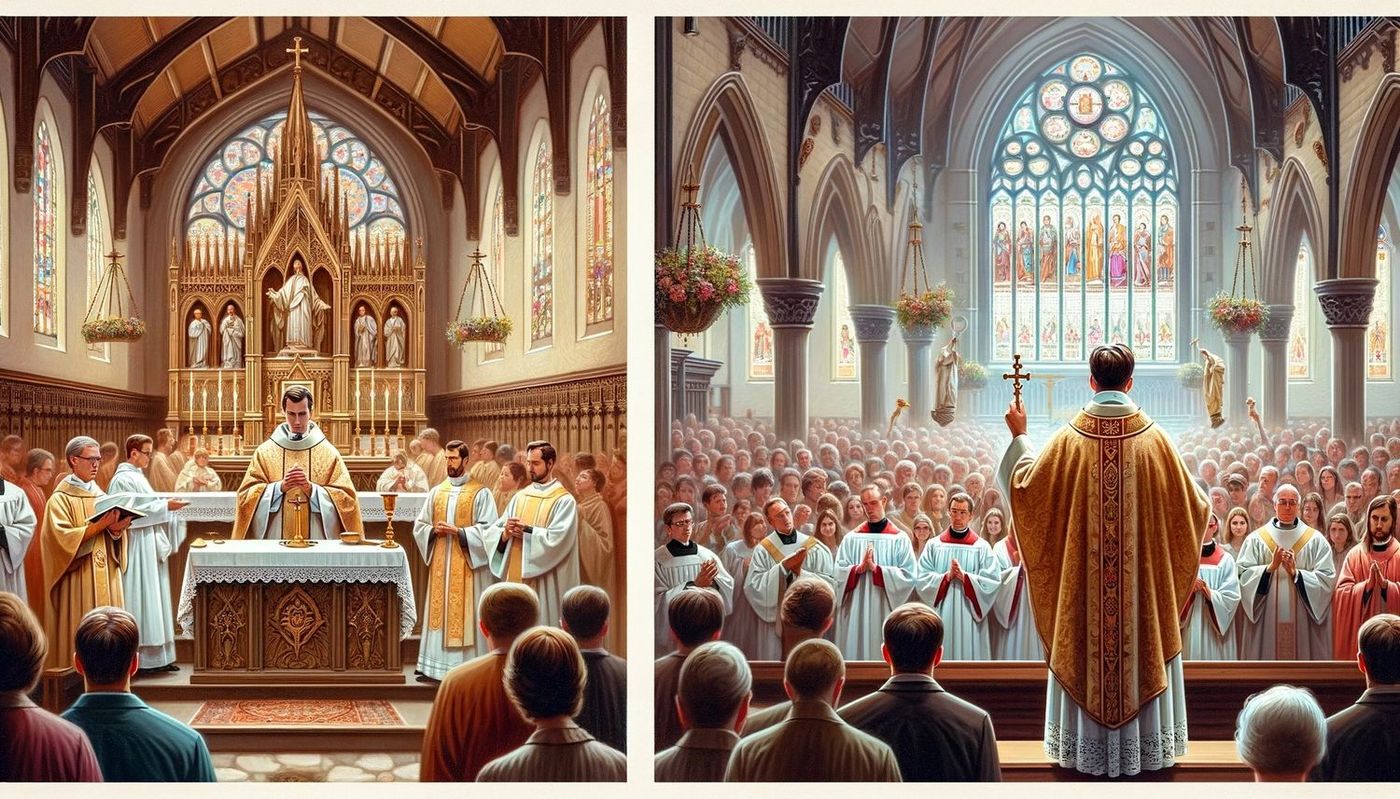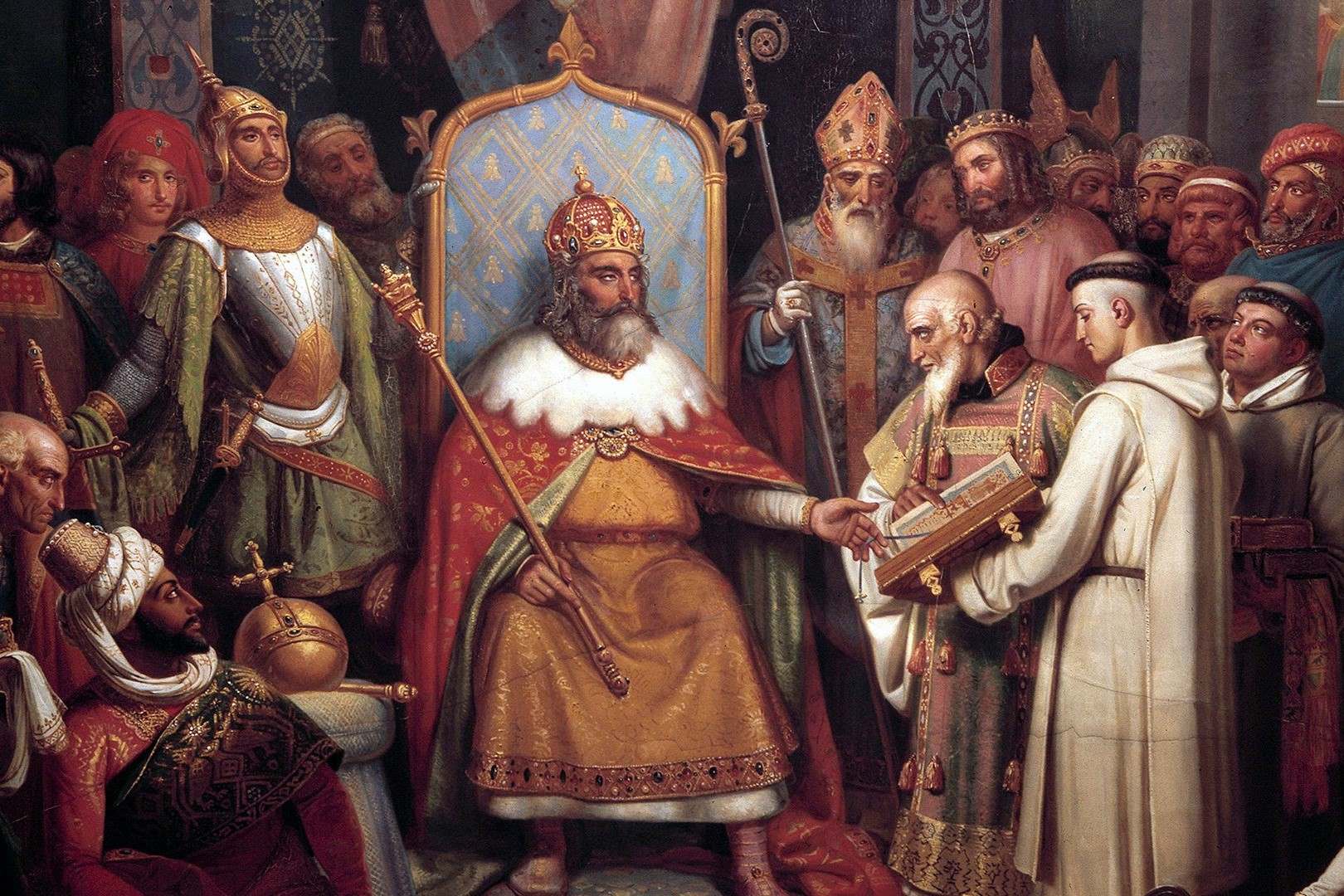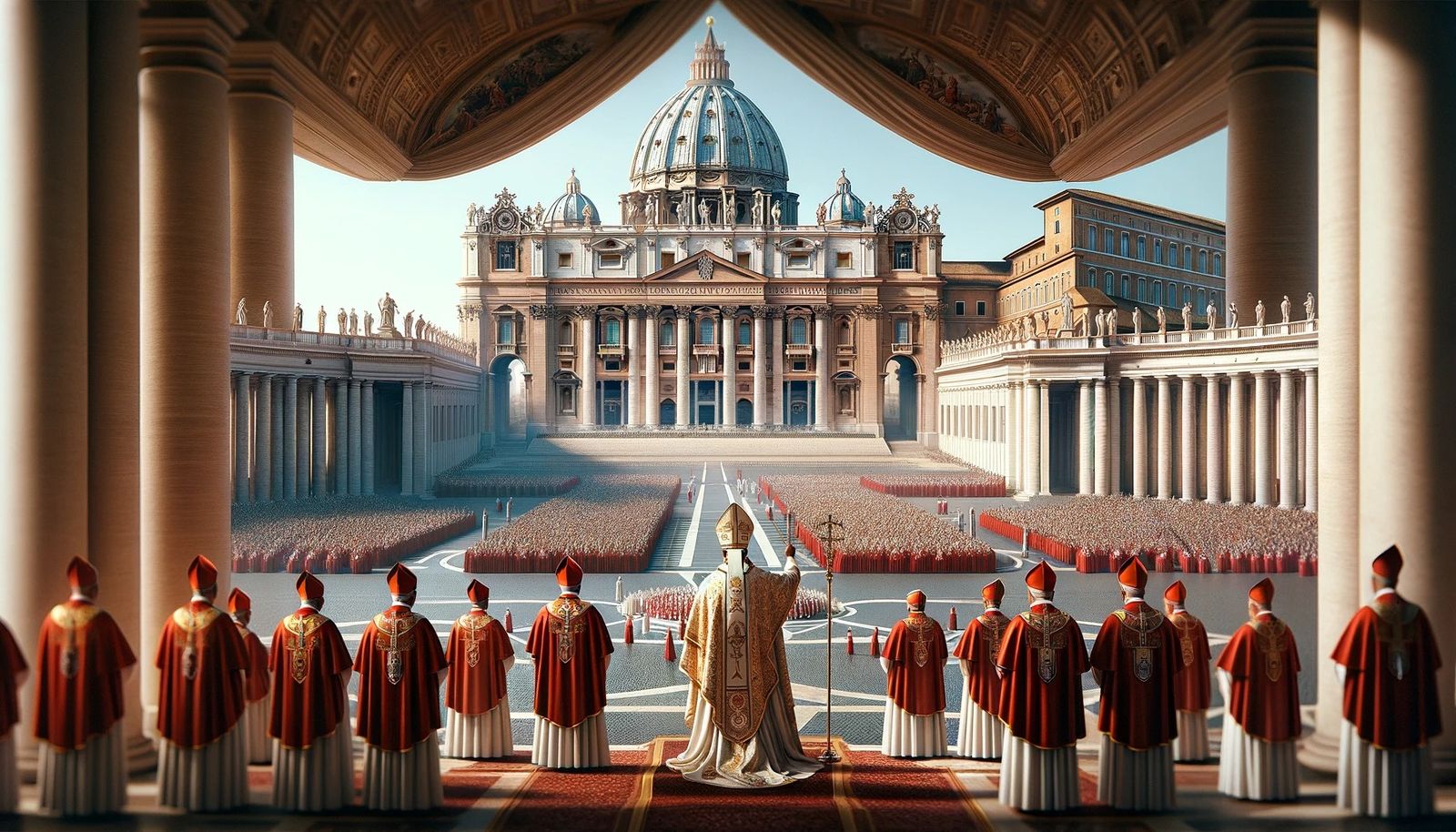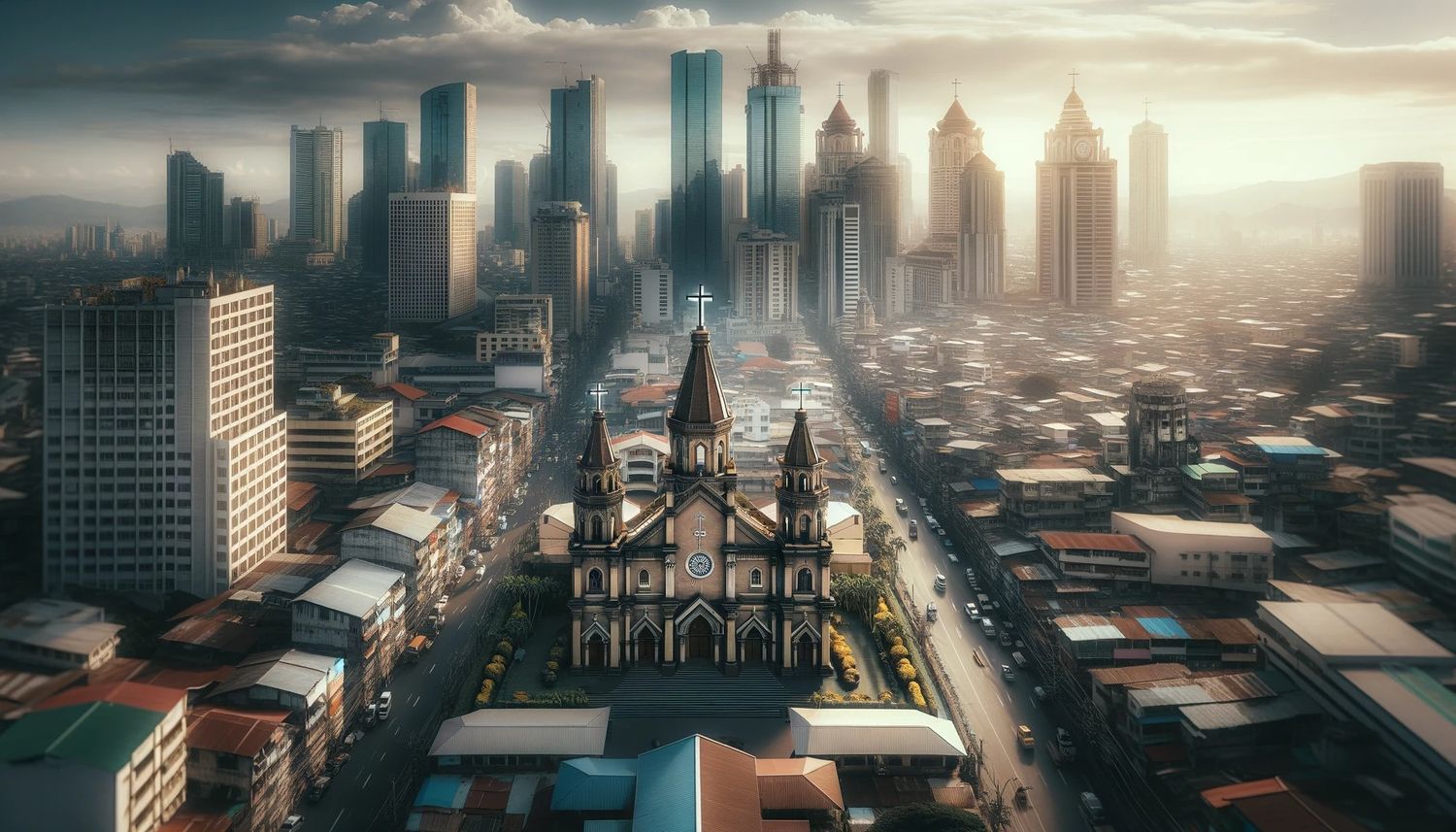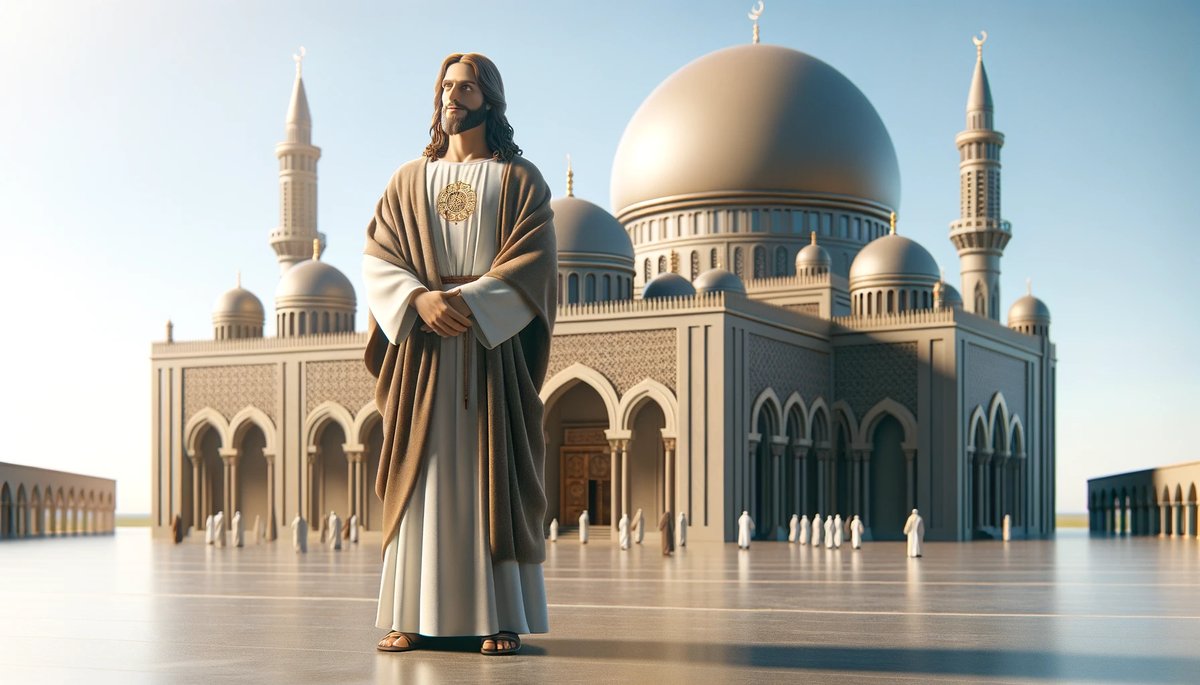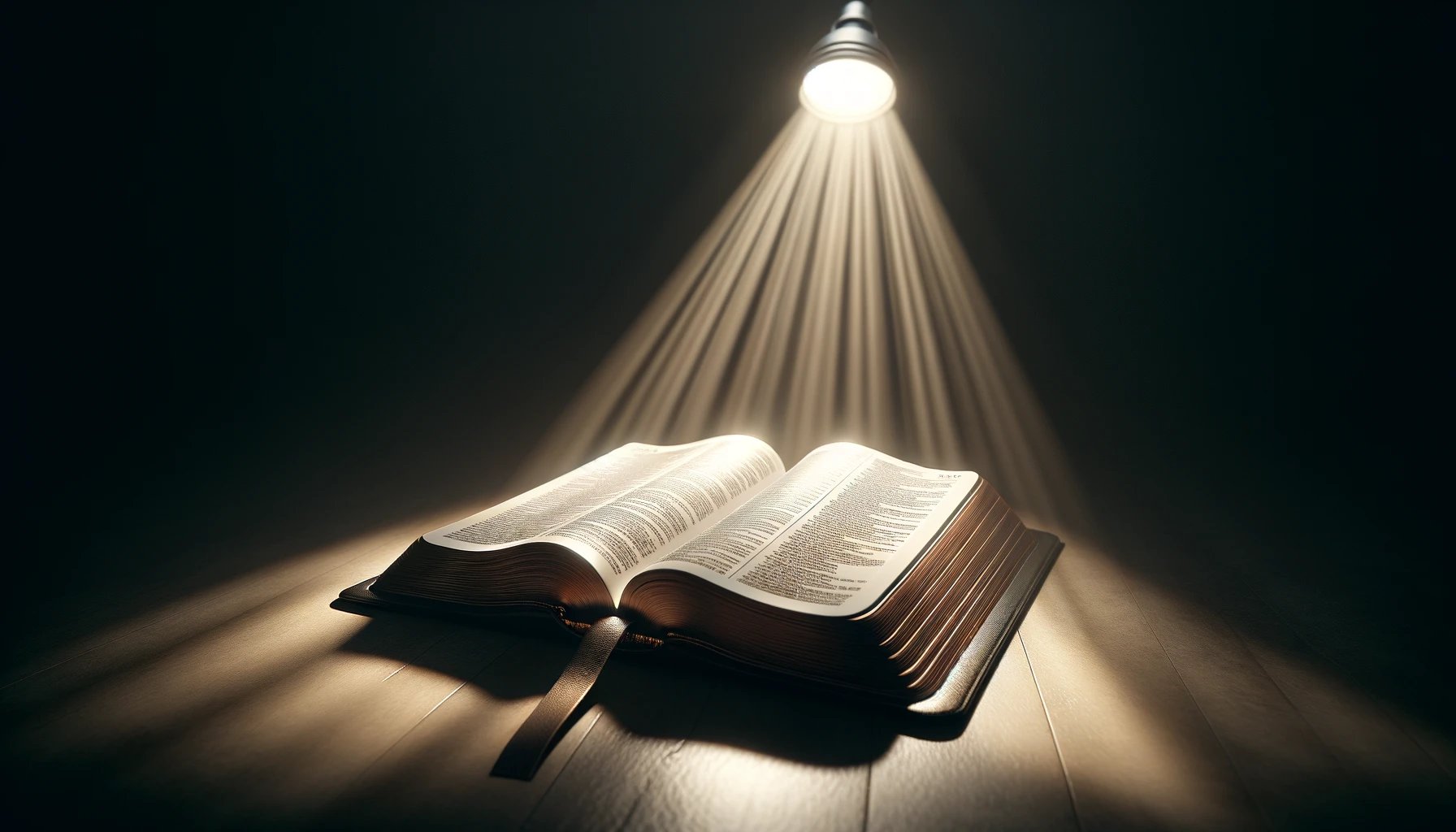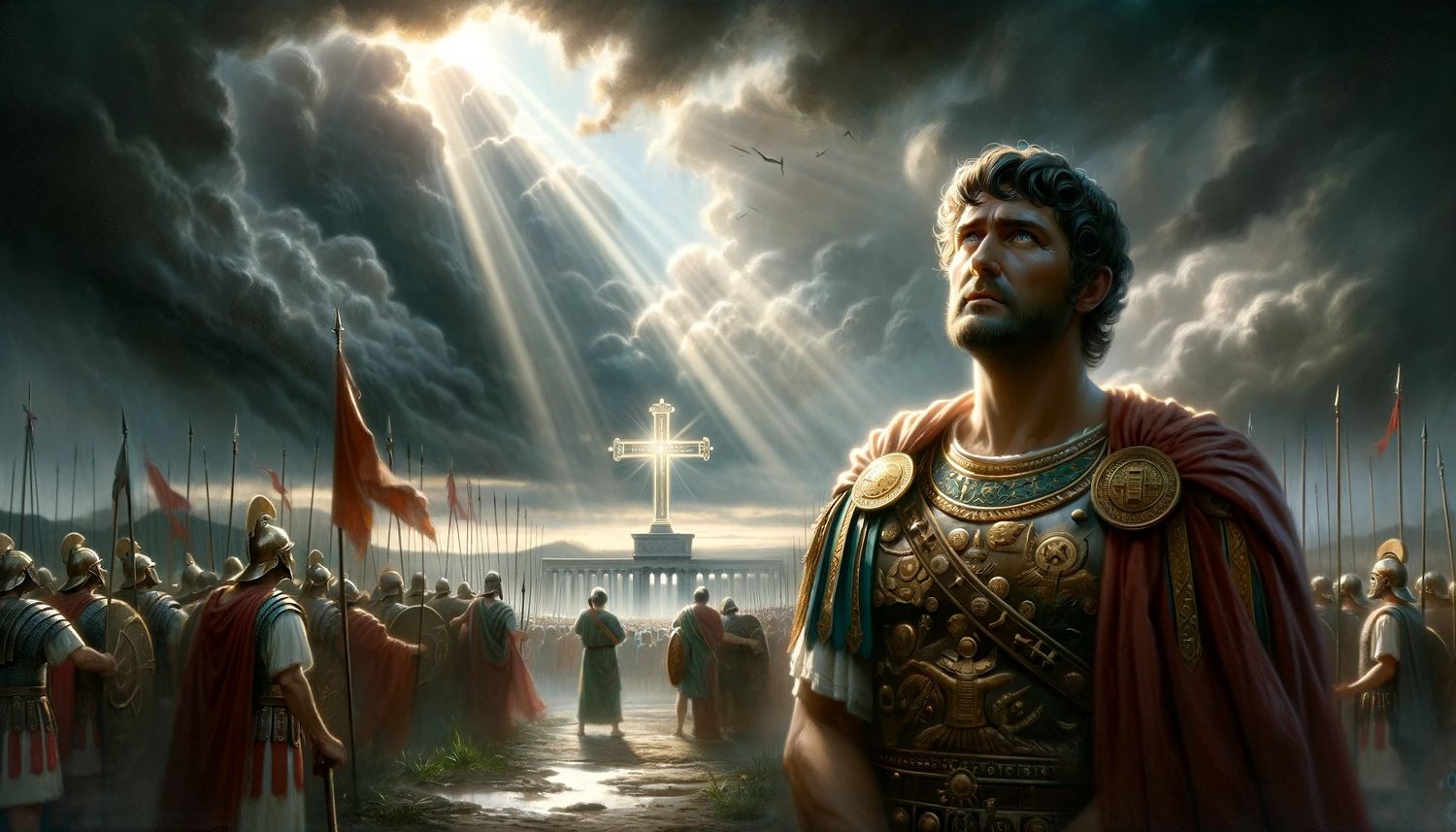Home>Theology and Spirituality>What Religion Got Caught In The Middle Of Wars Between Catholicism And Islam In Spain?
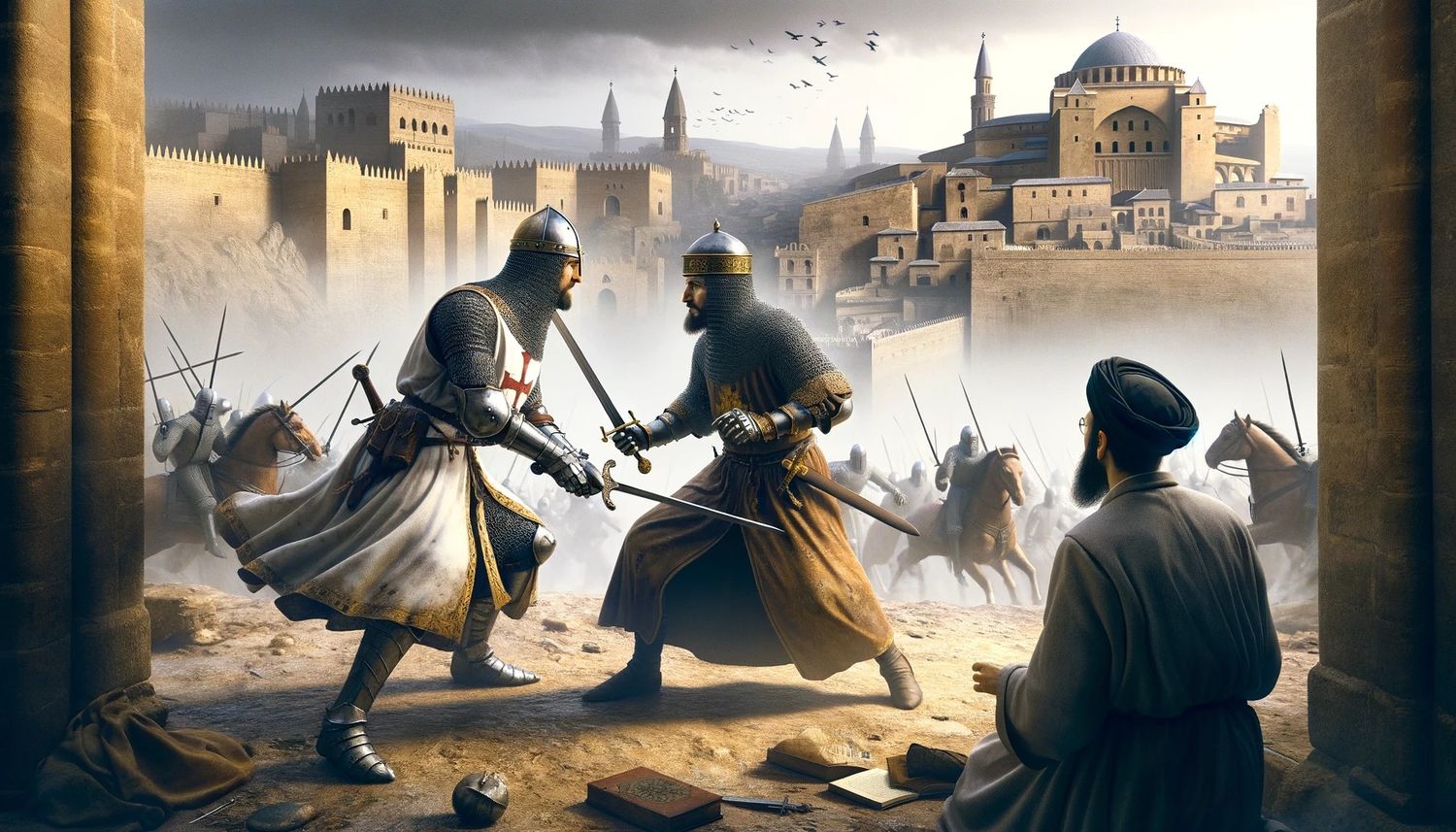

Theology and Spirituality
What Religion Got Caught In The Middle Of Wars Between Catholicism And Islam In Spain?
Published: February 17, 2024
Ericka Andersen, an editor at Christian.net, expertly merges digital strategy with content creation, focusing on faith and societal issues. Her communication skills enhance the platform's engaging narratives, fostering meaningful dialogue on belief's impact on society.
Discover the religious conflicts between Catholicism and Islam in Spain and the impact on theology and spirituality. Explore the historical battles and their influence on religion.
(Many of the links in this article redirect to a specific reviewed product. Your purchase of these products through affiliate links helps to generate commission for Christian.net, at no extra cost. Learn more)
Table of Contents
Introduction
The history of Spain is a tapestry woven with the threads of Catholicism and Islam, two powerful and influential religions that have shaped the country's cultural, social, and political landscape. The interplay between these two faiths has left an indelible mark on Spain, with echoes of their interactions reverberating through the centuries.
In this article, we will embark on a journey through time, delving into the tumultuous and complex relationship between Catholicism and Islam in Spain. From the early coexistence and collaboration to the fierce conflicts and struggles for dominance, the religious dynamics in Spain have been a captivating saga of faith, power, and resilience.
Join us as we unravel the compelling narrative of how religion became entangled in the wars and conquests that unfolded on the Iberian Peninsula, leaving an enduring legacy that continues to shape Spain's religious identity to this day.
Read more: How Are Catholicism And Islam Similar
The Rise of Catholicism and Islam in Spain
In the annals of history, the Iberian Peninsula witnessed the convergence of two formidable religious forces – Catholicism and Islam. The early centuries of the first millennium saw the emergence of Catholicism as the dominant faith in the region, brought by the Roman Empire's expansion. However, the religious landscape underwent a seismic shift with the Islamic conquest of Spain in 711 AD.
Under the Umayyad Caliphate, Islam flourished, and the Iberian Peninsula, known as Al-Andalus, became a vibrant center of learning, culture, and religious tolerance. The intermingling of Muslim, Christian, and Jewish communities fostered a rich tapestry of art, architecture, and scholarship, marking a golden age of coexistence and intellectual exchange.
Meanwhile, Catholicism persisted in the northern realms of the peninsula, where Christian kingdoms such as Asturias and Navarre held sway. The coexistence of these two faiths, albeit with occasional conflicts, engendered a unique religious pluralism that distinguished Spain from the rest of Europe.
The cultural and scientific advancements of Al-Andalus, coupled with the enduring influence of Catholicism in the north, created a diverse and dynamic religious landscape that set the stage for a complex interplay of faiths. This period of cohabitation and cross-pollination laid the foundation for the rich religious heritage that defines Spain to this day.
As the centuries unfolded, the religious dynamics in Spain would undergo dramatic transformations, marked by conflicts, conquests, and the enduring legacy of Catholicism and Islam. The subsequent sections of this article will delve into the pivotal events that shaped the religious landscape of Spain, unraveling the intricate tapestry of faith, power, and resilience that unfolded on the Iberian Peninsula.
The Reconquista and the Fall of Muslim Rule
The Reconquista, a centuries-long campaign, marked a pivotal chapter in the religious history of Spain. It was a period defined by the fervent efforts of the Christian kingdoms to reclaim the territories under Muslim rule. The momentum of the Reconquista gained traction in the 11th century, as the Christian kingdoms of Castile, Aragon, and Navarre launched successive offensives to push back the Islamic presence in the Iberian Peninsula.
The climactic turning point came with the fall of Granada in 1492, signaling the end of Muslim rule in Spain. The Catholic Monarchs, Isabella I of Castile and Ferdinand II of Aragon, celebrated the triumph of the Reconquista, marking a watershed moment in Spanish history. The fall of Granada not only symbolized the culmination of the Christian reconquest but also heralded a new era of religious hegemony under Catholic rule.
The aftermath of the Reconquista reverberated across Spain, reshaping the religious landscape and societal dynamics. The victorious Christian kingdoms sought to consolidate their power and assert their religious authority, leading to the implementation of measures that marginalized the Muslim and Jewish populations. The edicts of expulsion and forced conversions cast a shadow over the once-thriving multicultural coexistence, as the Catholic Monarchs endeavored to establish a homogenous Christian realm.
The fall of Muslim rule in Spain marked a profound transformation in the religious fabric of the Iberian Peninsula. The Reconquista not only heralded the ascendancy of Catholicism but also engendered a legacy of religious intolerance and persecution. The echoes of this tumultuous period continue to resonate in Spain's historical memory, underscoring the enduring impact of the Reconquista on the country's religious identity.
The Reconquista and the fall of Muslim rule stand as a testament to the intricate interplay of faith, power, and conquest that shaped the religious narrative of Spain. This pivotal chapter in Spanish history laid the groundwork for the religious dynamics that would unfold in the centuries to come, leaving an indelible imprint on the country's cultural and religious heritage.
The Spanish Inquisition and the Expulsion of Muslims and Jews
The aftermath of the Reconquista ushered in a dark and tumultuous chapter in Spain's religious history – the era of the Spanish Inquisition. Established in 1478 by the Catholic Monarchs, Isabella I of Castile and Ferdinand II of Aragon, the Spanish Inquisition was a tribunal tasked with enforcing religious orthodoxy and rooting out heresy. Its inception marked a period of intense religious scrutiny and persecution, casting a long shadow over Spain's diverse religious communities.
The Spanish Inquisition targeted not only those who deviated from Catholic doctrine but also the Muslim and Jewish populations who faced increasing pressure to convert to Christianity. The edicts of expulsion, most notably the Alhambra Decree of 1492, mandated the expulsion of the Jewish community from Spain, leading to a mass exodus that reverberated across the Mediterranean. The expulsion of the Jews dealt a severe blow to Spain's cultural and intellectual fabric, depriving the country of a vibrant and influential community that had contributed significantly to its flourishing during the era of Al-Andalus.
Similarly, the Muslim population faced escalating persecution and marginalization under the shadow of the Spanish Inquisition. The implementation of forced conversions and the suppression of Islamic practices sought to eradicate the Muslim presence in Spain, further consolidating the Catholic Monarchs' vision of a homogenously Christian realm. The expulsion of Muslims, culminating in the expulsion of the Moriscos in the early 17th century, marked the denouement of a once-thriving Islamic presence in Spain, leaving a palpable void in the country's religious and cultural tapestry.
The Spanish Inquisition and the expulsion of Muslims and Jews cast a long and harrowing shadow over Spain's religious history, leaving an enduring legacy of religious intolerance and persecution. The repercussions of these events reverberated far beyond the borders of Spain, shaping the destinies of the exiled communities and leaving an indelible imprint on the country's religious identity. The echoes of this tumultuous period continue to resonate in Spain's historical memory, underscoring the enduring impact of the Spanish Inquisition and the expulsion of Muslims and Jews on the country's cultural and religious heritage.
The Moriscos and the Revolt of the Alpujarras
The expulsion of the Muslim population from Spain, known as the Moriscos, marked a tumultuous and tragic chapter in the country's religious history. Following the implementation of forced conversions and the suppression of Islamic practices during the era of the Spanish Inquisition, the Moriscos found themselves caught in a harrowing struggle for survival and identity. Despite outwardly conforming to Christian practices, the Moriscos clandestinely maintained their Islamic heritage, facing persecution and marginalization as they grappled with the erosion of their cultural and religious traditions.
The plight of the Moriscos came to a head with the Revolt of the Alpujarras, a watershed moment that reverberated across Spain and underscored the enduring resilience of a community grappling with the specter of forced assimilation. The Alpujarras, a rugged and mountainous region in the province of Granada, became the epicenter of a rebellion fueled by the Moriscos' fervent desire to reclaim their heritage and resist the oppressive measures imposed upon them.
The revolt, which erupted in 1568, was a poignant manifestation of the Moriscos' defiance and yearning for autonomy. Led by charismatic leaders such as Aben Humeya, the uprising bore witness to fierce clashes and acts of defiance as the Moriscos sought to assert their identity and push back against the suffocating grip of religious persecution. The revolt unfolded as a poignant testament to the enduring spirit of a community grappling with the erosion of its cultural and religious heritage.
The Revolt of the Alpujarras, though ultimately quelled by the forces of the Spanish Crown, left an indelible mark on Spain's historical memory. It underscored the profound impact of religious intolerance and persecution on the fabric of society, as well as the resilience and tenacity of a community striving to preserve its identity in the face of adversity. The echoes of the revolt continue to resonate in Spain's cultural and religious narrative, serving as a poignant reminder of the enduring struggle for religious and cultural autonomy in the annals of history.
The legacy of the Moriscos and the Revolt of the Alpujarras endures as a testament to the complexities of Spain's religious history, encapsulating the profound impact of religious dynamics on the country's cultural and social fabric. The resilience and defiance displayed by the Moriscos in the face of adversity stand as a poignant testament to the enduring struggle for religious and cultural autonomy, leaving an indelible imprint on Spain's historical narrative.
Read more: When Did Catholicism Start In Spain
Conclusion: The Lasting Impact on Religion in Spain
The intricate interplay of Catholicism and Islam in Spain has left an enduring imprint on the country's religious landscape. The tumultuous events that unfolded, from the coexistence and collaboration to the conflicts and conquests, have woven a complex tapestry of faith, power, and resilience that continues to shape Spain's cultural and religious identity.
The legacy of religious dynamics in Spain is palpable, resonating through the centuries and manifesting in the country's diverse cultural heritage. The echoes of Al-Andalus, the fervor of the Reconquista, and the shadow of the Spanish Inquisition have etched indelible marks on Spain's religious narrative. The expulsion of Muslims and Jews, the plight of the Moriscos, and the Revolt of the Alpujarras stand as poignant testaments to the enduring struggle for religious and cultural autonomy.
The lasting impact of these events reverberates in Spain's historical memory, underscoring the profound influence of religious dynamics on the country's social and political fabric. The legacy of religious intolerance and persecution, coupled with the resilience and tenacity of diverse religious communities, has shaped Spain's ethos and collective consciousness.
Today, Spain's religious landscape bears the imprints of its tumultuous history, reflecting a rich mosaic of cultural influences and religious traditions. The coexistence of Catholicism and Islam, despite the conflicts and upheavals, has engendered a unique religious pluralism that distinguishes Spain as a vibrant tapestry of faiths.
As Spain continues to navigate the complexities of its religious heritage, the enduring legacy of Catholicism and Islam serves as a poignant reminder of the profound impact of religious dynamics on the country's cultural and social fabric. The resilience and diversity of Spain's religious communities stand as a testament to the enduring spirit of coexistence and the rich tapestry of faith that defines the country's religious identity.
In essence, the lasting impact of religion in Spain transcends the confines of history, weaving a narrative of faith, resilience, and cultural richness that continues to shape the country's identity and ethos. The interplay of Catholicism and Islam has left an indelible mark on Spain's religious tapestry, embodying the enduring spirit of diversity and resilience that defines the country's cultural heritage.
